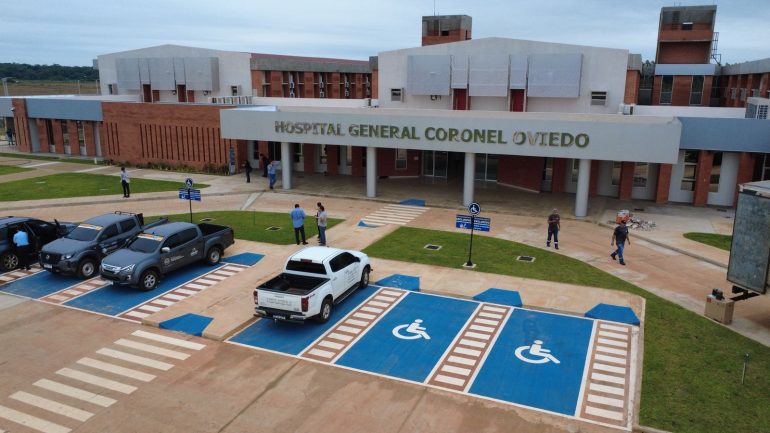Paraguay’s Ministry of Public Health and Social Welfare (MSPBS) officially verified that the regional hospitals in Encarnación (Itapúa Department) and Coronel Oviedo (Caaguazú Department) are fully authorised and accredited under national law. The Encarnación hospital opened in February 2025, while the Coronel Oviedo facility began operating in July. Both are now part of the national healthcare network.
In a public statement, the MSPBS confirmed that both the Hospital General de Itapúa “Ladislao Hrisuk Szuljew” and the Hospital General de Coronel Oviedo are approved and listed under national law. This means both institutions meet the infrastructural, operational, and staffing standards required for major public hospitals.
Strengthening regional health networks
The accreditation holds special significance for decentralised healthcare in Paraguay. The hospital in Itapúa, known as the “Gran Hospital del Sur” (“Great Hospital of the South”), serves over one million people across Itapúa, Misiones, Ñeembucú, and Alto Paraná. Meanwhile, the Coronel Oviedo facility offers high-complexity medical services and has already registered more than 160,000 patient consultations since its opening.
Residents of Itapúa and Caaguazú now have access to modern medical care without needing to travel to the capital. For rural families, both hospitals serve as regional referral centres. The Itapúa complex has 400 beds and advanced diagnostic equipment, while Coronel Oviedo’s laboratories and imaging units perform hundreds of tests daily.
Looking forward
Paraguay’s Ministry of Health reaffirmed its commitment to expanding the national hospital network and enhancing service quality. The institution also pledged continued investment in cutting-edge medical technology. The full authorisation of both hospitals forms part of a long-term government plan to decentralise medical services and strengthen the regional system.
Though both hospitals are fully operational, continued progress will depend on maintaining staff levels, securing funding, and improving referral systems. Directors have stated that future priorities include expanding specialised services, increasing bed capacity, and enhancing outpatient care.
The recognition of the accredited hospitals in Paraguay as fully authorised institutions marks a major step toward accessible, decentralised healthcare. For the people of Itapúa and Caaguazú, it means one thing above all: high-quality medical attention is now close to home.


